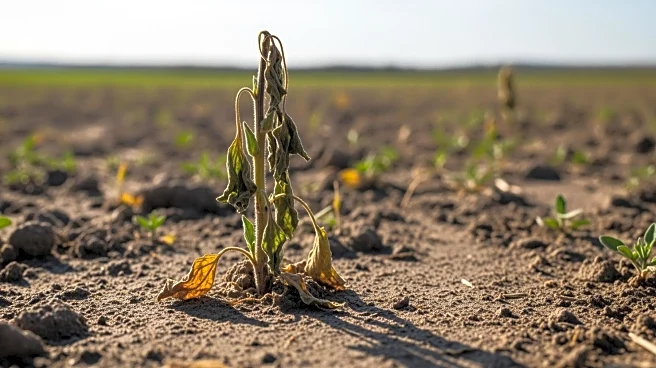What's Happening?
The agricultural sector is under scrutiny as debates around its environmental impact intensify. Critics argue that agriculture is a major contributor to greenhouse gas emissions, with reports from organizations
like the Environmental Working Group highlighting issues such as excessive nitrous oxide emissions from fertilized corn. However, the agricultural community contends that these criticisms overlook the industry's strides in sustainability and innovation. Precision agriculture, which employs technologies like GPS and drones, is cited as a tool for reducing environmental impact, though some reports claim its benefits are overstated. The debate is further complicated by calls for a shift towards organic farming and smaller-scale operations, which some argue are not economically viable on a large scale.
Why It's Important?
The ongoing debate over agriculture's role in climate change has significant implications for policy and public perception. As agriculture is essential for food security, balancing environmental concerns with the need to sustain food production is crucial. The criticism faced by the industry could influence future regulations and funding priorities, potentially affecting farmers' livelihoods and the broader food supply chain. The push for more sustainable practices highlights the need for continued innovation and investment in technologies that can reduce agriculture's environmental footprint while maintaining productivity.
Beyond the Headlines
The discourse around agriculture and climate change reflects broader tensions between environmental goals and economic realities. The criticism of precision agriculture and calls for organic farming raise questions about the scalability and economic feasibility of proposed solutions. The debate also touches on issues of equity, as smaller farms may struggle to compete without government support. The focus on agriculture as a scapegoat for climate issues may divert attention from other significant contributors to greenhouse gas emissions, such as transportation and energy production.











